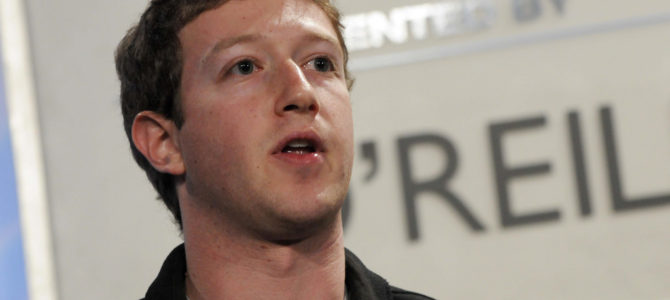
Facebook emperor Mark Zuckerberg recently gave an interview to Ezra Klein of Vox. First question: “Is … Facebook … now more like a government than a traditional company”? You might want to ignore it, but these powerful, influential guys are discussing the American future.
Zuckerberg gave this interview because he’s in trouble. Liberals who used to love him are now terrified that Facebook is brainwashing people and helping Russians steal elections. Nobody’s ever going to make Facebook friendship feel new and promising again, but Zuckerberg needs to persuade liberals to keep loving Silicon Valley. As the liberal journalist most publicly committed to controlling American thinking through online expertise, especially on policy, Klein is ideal for the job.
So this discussion is really a negotiation of liberal control over digital democracy. Like many liberal intellectuals, Zuckerberg never talks about his power. Instead, it’s “We’ve had to build out a whole set of policies and governance.” This affected humility comes with admissions of “problems.”
He’s worried about helping us: “With a community of more than 2 billion people all around the world… How can you set up a more democratic or community-oriented process that reflects the values of people around the world? … I think it’s actually one of the most interesting philosophical questions that we face.”
He makes liberals an offer they cannot refuse: Policing thought to keep command of social media. “There are disputes between people around whether that content is acceptable, whether it’s hate speech or valid political speech; whether it is an organization which is deemed to be a bad or hateful or terrorist organization or one that’s expressing a reasonable point of view.” The ways he offers to deal with these things involve control from foreign governments and media prestige, which gives liberals a great advantage.
Klein’s answer to this humility is close to humiliation: “Has Facebook just become too big and too vast and too consequential for normal corporate governance structures, and also normal private company incentives?” He’s implying a need for regulating or even nationalizing Facebook.
“You have a lot more personal power [than normal corporations],” Klein says. “There’s no quadrennial election for CEO of Facebook. And that’s a normal way that democratic governments ensure accountability. Do you think that governance structure makes you, in some cases, less accountable?” Indeed, why should Zuckerberg be president-for-life of his global community?
Zuckerberg takes all Klein’s saber-rattling and tut-tutting with equanimity. He admits he’s not been transparent, let alone accountable, but he will make amends: “You can imagine some sort of structure, almost like a Supreme Court… made up of independent folks who don’t work for Facebook, who ultimately make the final judgment call on what should be acceptable speech in a community that reflects the social norms and values of people all around the world.”
“This year, we’ve rolled out a number of changes to News Feed… to boost in the ranking broadly trusted news sources… [like] the Wall Street Journal or New York Times.” Klein wonders what this will do to small bloggers. Yet Zuckerberg doesn’t even bother to address the concern. Digital is happening. The past is the past.
This is America in 2018 and the interview underscores the election of importance:
There were the French elections… we spent… time developing new AI tools to find… fake accounts spreading misinformation and we took down… more than 30,000 accounts, and… reports out of France were that people felt like that was a much cleaner election on social media.
A few months later… the German elections… We augmented the playbook again to work directly with the election commission in Germany. If you work with the government in a country, they’ll really actually have a fuller understanding of what is going on…
Fast-forward to the special election in Alabama. We deployed a number of new tools… to find fake accounts… trying to spread false news, and we got them off before a lot of the discussion around the election… We felt a lot better about the result there.
Happy elections, where digital communications under liberal Zuckerberg go together with the victories of pro-Obama, anti-Trump politicians. Zuckerberg is on the right side of history, 2016 notwithstanding! Is the German government impartial in deciding what’s acceptable political speech when people speak against it before an election? Is France, where the state jails or silences shock comics for what is called free speech in America, a good example of policing political speech? Zuckerberg is quiet on such matters.
Importantly, not one thought in the discussion allows for conservative concerns to matter. If you’re not happy with liberals’ continual attempts to police the digital realm, it’s time to think about what they’re saying and organize ways of deciding what to do.
Zuckerberg offers nothing by way of punishing Russia. But he says this about private citizens: “That is actually the most challenging… free speech issue. Folks are saying stuff that may be wrong, but they mean it, they think they’re speaking their truth, and do you really wanna shut them down for doing that?”
His solution: punish their visibility. So it’s okay to ding outlets that lack a famous brand. In practice, given liberal dominance of pre-digital media, conservatives will have to deal with thought police. Zuckerberg is actually offering famous liberal journalists a chance to affect visibility and the limits of political speech. Is it good for America?









